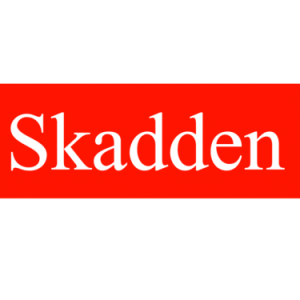 NEW YORK — The 2nd Circuit Court of Appeals ruled that a temporary attorney engaged in document review work at Skadden Arps Slate Meagher & Flom LLP in North Carolina may move forward with his class action overtime claim against the law firm. The firm argued that the plaintiff and other contract attorneys were exempt from the Fair Labor Standards Act (FLSA) as licensed attorneys engaged in the practice of law. However, the plaintiff asserted that even though he was an attorney, he was not exempt from federal overtime pay requirements because he really wasn’t practicing law when he did document review work. According to the plaintiff, the work he performed did not require any legal knowledge, skill, or training.
NEW YORK — The 2nd Circuit Court of Appeals ruled that a temporary attorney engaged in document review work at Skadden Arps Slate Meagher & Flom LLP in North Carolina may move forward with his class action overtime claim against the law firm. The firm argued that the plaintiff and other contract attorneys were exempt from the Fair Labor Standards Act (FLSA) as licensed attorneys engaged in the practice of law. However, the plaintiff asserted that even though he was an attorney, he was not exempt from federal overtime pay requirements because he really wasn’t practicing law when he did document review work. According to the plaintiff, the work he performed did not require any legal knowledge, skill, or training.
The trial court agreed with the defendants. On appeal, the 2nd Circuit disagreed and pointed to a North Carolina State Bar ethics opinion that indicated the exercise of independent legal judgment was inherent in the definition of the practice of law.
Professional Employees under FLSA
Under FLSA, so-called professional employees are exempt from both minimum wage and overtime pay. There are generally two types of exempt professional employees – learned professionals and creative professionals. In this case, Skadden is claiming that the plaintiff is an attorney and, therefore, a learned professional.
To qualify for the learned professional exemption, the following must be satisfied:
- The employee must be compensated on a salary or fee basis no less than $455 per week.
- The employee’s primary duty must be the performance of work requiring advanced knowledge which is predominantly intellectual in character and requires the consistent exercise of discretion and judgment.
- The knowledge required must be in a field of science or learning.
- The advanced knowledge must be customarily acquired by a prolonged course of specialized intellectual instruction.
Professional employees perform work that uses advanced knowledge to analyze, interpret, or make deductions from facts. This is distinguished from work involving routine mental, manual, mechanical, or physical work. Merely holding a valid license or certificate permitting the practice of law or medicine is not enough for an employee to be exempt. He or she has to be actually engaged in the practice of law.
Trial Court Reversed
The trial court here concluded that any level of document review was considered the practice of law in North Carolina, and that since doctors and attorneys were carved out of the salary and duty analysis used to determine if other types of employees fall under the FLSA’s professional exemption, a fact-intensive inquiry would have been inappropriate. The trial court granted the defendant’s motion to dismiss. However, the court on appeal reversed that decision, stating that when the plaintiff’s complaint is read in the light most favorable to him, he provided services that a machine could have provided. An individual who, in the course of reviewing discovery documents, undertakes tasks that could otherwise be performed entirely by a machine cannot be said to engage in the practice of law. Therefore, the plaintiff’s case was reinstated and may move forward.
Misclassification remains a hotly-contested issue, and many employees across the country may have been misclassified as exempt from overtime. If you feel that you fit this description, you should call (855) 754-2795 or complete the Free Unpaid Overtime Case Review form on the top right of this page. Our top-rated team of wage lawyers will evaluate your situation to determine your best course of action. We will also determine if it is in your best interest to file a lawsuit against your employer. There are strict time limitations for filing, so it is important that you call our experienced attorneys today.
